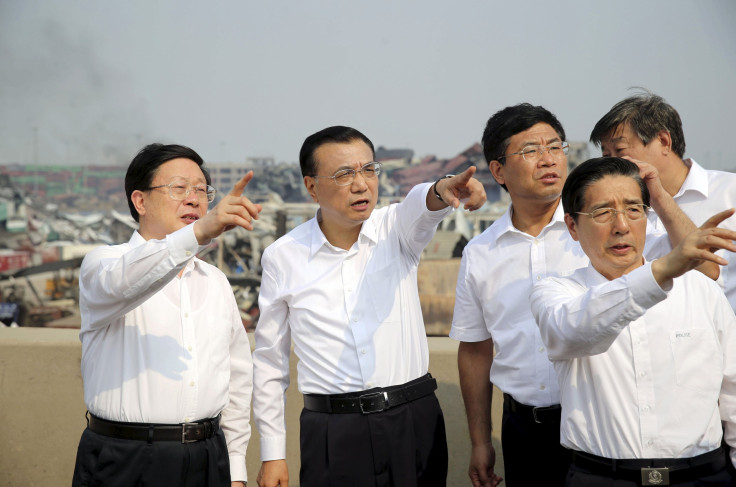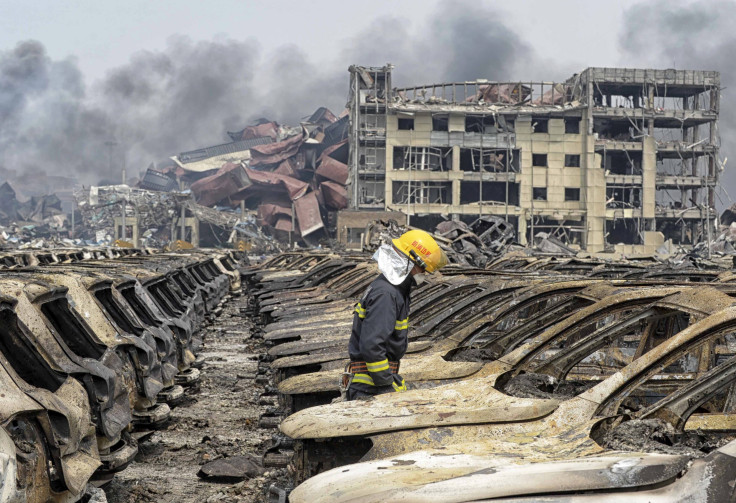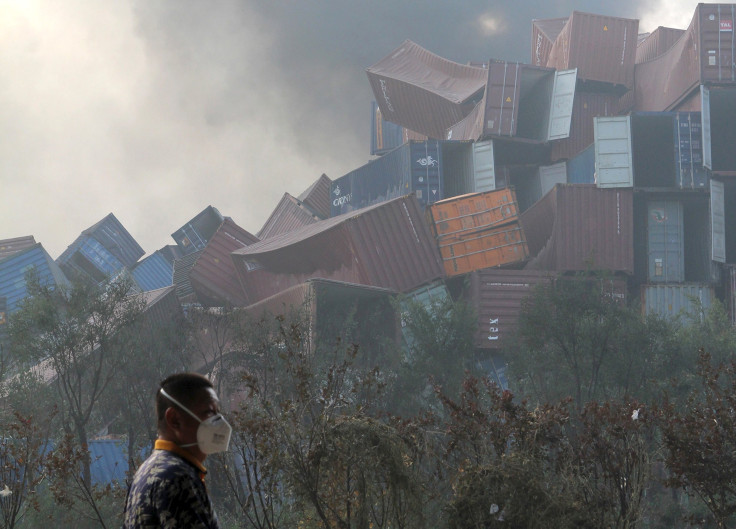Tianjin Explosions: China Pledges 'No Cover Ups', Rigorous Investigation Amid Public Anger

China has tried to reassure its citizens that the causes of the massive explosions in Tianjin last week will not be covered up. The government has faced growing public criticism of its failure to provide clear information about both the causes of the explosion and the fate of firefighters and police missing after the blast.
On Saturday angry relatives of auxiliary firefighters tried to burst into a government press conference, demanding to know what had happened to their loved ones, while local residents whose homes were damaged in the blast have held demonstrations calling for more information and official aid.
Even the official Global Times newspaper on Monday caught the mood of public anger at the blast, which wrought destruction over an area of more than 1.8 square miles and left 6,000 people homeless. In a commentary it criticized what it called “the inadequate disaster response work” of the local government, in particular its “fumbling” efforts to communicate.

In what appears to be an attempt to cool the anger, state media on Monday highlighted comments by China’s Premier Li Keqiang, who visited the site of the blast on Sunday. Li said that the government owed the “families of victims, Tianjin people and all Chinese an answer,” the official Xinhua news agency reported. He was also quoted as saying that auxiliary and privately-employed firefighters who died in the disaster were heroes, and reassured their relatives that they would receive the same compensation as full-time firefighters.
The comments follow widespread rumors online that officials were covering up the numbers of firefighters and police who had died. On Monday the Tianjin government announced a revised death toll of 114, including 39 firefighters and five police officers. It also said that 70 people were still missing, including more than 60 firefighters, and almost 700 people remained in hospital.
In a separate editorial, the People's Daily, China’s official government mouthpiece, said the authorities would carry out a thorough investigation of the causes of the explosion, and stressed that anyone responsible would be held accountable. Its comments follow widespread speculation about why dangerous chemicals were allowed to be stored so close to residential areas, amid reports that the company involved had links to top local government officials.
Some of these reports have now been denied by the authorities, but the People’s Daily cited the Chinese government’s recent anti-corruption campaign, which has led to the arrest or jailing of several top political and military officials, as proof that it would not protect guilty officials.
“There is no doubt that the government will… strictly investigate” what happened, it said. “We have uncovered the cases of [officials] Zhou Yongkang, Xu Caihou, Guo Boxiong and Ling Jihua. Why should there be any cover ups or deception over a safety accident? Why would we allow any officials to be protected,” it said. And it also called on officials to use less “jargon” in order to communicate better with the public.
Li, meanwhile, also pledged that the government would release clear data about the environmental impact of the blast, amid fears of pollution and the spread of toxic chemicals by rain.

Despite these reassurances, however, the authorities, always nervous about the power of public opinion, have sought to limit the impact of public anger at the blast and the official response, targeting in particular online speculation over the death toll. Over the weekend they closed or suspended 50 websites for “spreading rumors,” including claims that 1,000 people had died in the blasts. Several hundred social media accounts are also reported to have been suspended.
However, the official China Daily newspaper admitted on Monday that rumors were “not surprising” given the “lack of verified information.” It said in an editorial that “conspiracy theories will build up a head of steam unless the government unravels the mysteries surrounding the incident with a thorough and transparent probe that is able to answer people’s questions.”
The editorial also quoted President Xi Jinping as saying that a “bloody lesson must be learned.” Authorities have ordered a national investigation into safety standards relating to the use of dangerous chemicals and inflammable materials.
© Copyright IBTimes 2024. All rights reserved.












